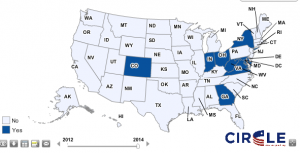I’ve been reflecting a lot on philanthropy the last few days – as I’ve been posting about organizations whose work is important to me, I’ve also been making donations to each of those organizations. In case you missed it, here are a few great organizations you may want to donate to:
- Somerville Homeless Coalition (donate here)
- The Welcome Project (donate here)
- Somerville Local First (donate here)
- JCI Scholars Program (donate here)
- Oxfam (donate here)
Like many of you, I try to do what I can to improve my communities. I give time and energy, and I also give money.
But that last bit always seems a bit awkward.
You don’t talk about money in polite company, after all.
I mean, there’s something that feels a bit audacious about philanthropy. As if giving money, even to organizations doing important work, is this wildly extravagant thing. And sharing your donation publicly – well, you might as well just admit that you’re really in it for the glory.
Or, at least that’s what I thought before I started working for non-profits.
Initially, I suppose, I thought giving anonymously was more altruistic.
There is of course, a rich philosophical literature about the nature of altruism and whether such a state even exists, but I’ll neglect that debate here, and simply say that my gut instinct told me that anonymous giving was somehow better. Somehow more noble. The route of those who cared about the work more than they cared about their ego.
So I was somewhat taken aback some ten years ago, when I overheard a development colleague comment that he was trying to convince a donor not to give anonymously.
I was surprised.
A Good person would give anonymously. Why would this fundraiser want to degrade that humility?
I was able to stick around for their reasoning – which I didn’t quite buy at the time – and heard him explain that putting a name to the donation would have a positive impact on other donors and prospects. It would increase the fundraising capacity of the organization, and ultimately, provide better support for the work.
To be honest, that sounded like one of those made-up reasons a corporate type might throw out to cover some deeper motive. Or maybe it was one of those things that only applied to rich, egoist types – if your rich, egoist friends see your name in lights, that will compel them to follow suit.
If that was the case, it still all came down to ego – even if you are one of those rare people who is not motivated by public recognition (or can sufficiently hide their glee at praise) – the reason to not give anonymously was so that you could play on the egos of others for the benefit of your organization.
That’s how I wrote it off at the time, but the incident has stuck with me.
And I think about it often as I make my own non-anonymous gifts to the organizations I care about. Of course, it’s entirely possible that I am just an egoist who really is in it for the glory, but on better days I think of it like this -
Supporting organizations doing important work is not some extravagant thing.
Not everyone has the capacity to do so financially, to be sure, but really, most people do. If you’re not trying to decide whether its the gas bill or electric bill to default on, if you’re not skipping meals because you can’t afford food. If you have the ability to buy something without doing the math on just how much that will leave you with -
Then you can afford to do something. Maybe not much, but you can do something.
Not giving anonymously makes me feel like a bit of a tool. It makes me feel like an egoist who is in it for the glory. But I continue to not give anonymously – not because I hope to manipulate other people’s egos, but because I hope to normalize that behavior.
Supporting organizations doing important work is not some extravagant thing.
It’s not for the rich. It’s not for the self-important. It’s for anyone who has the financial breathing room to spare.
So whatever organizations you support, give. Give publicly. Give at whatever level is meaningful to you, and help us all remember – philanthropy is not an extravagance. It’s an expectation.

 Bauwens is the founder of the P2P Foundation, and Kostakis is a political economist and founder of the P2P Lab. He is also a research fellow at the Ragnar Nurkse School of Innovation and Governance at Tallinn University of Technology, Estonia.
Bauwens is the founder of the P2P Foundation, and Kostakis is a political economist and founder of the P2P Lab. He is also a research fellow at the Ragnar Nurkse School of Innovation and Governance at Tallinn University of Technology, Estonia. 




